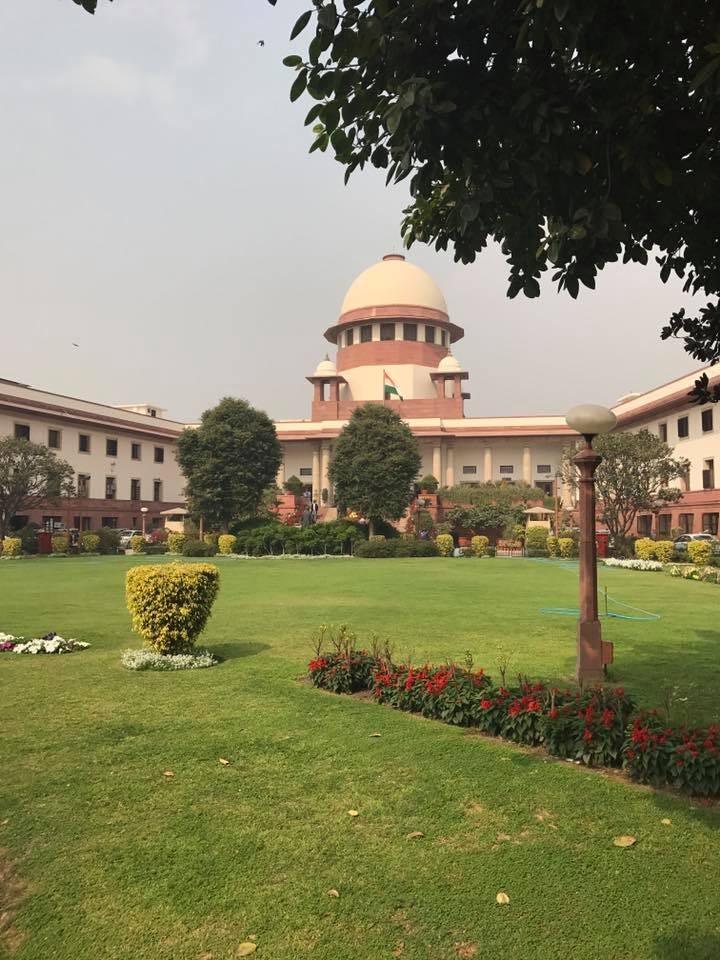Supreme Court's Landmark Judgment on Time-barring of Income Tax Reassessment Notices
The verdict strikes a fair equilibrium between the sovereign right of the state to collect due taxes and the need for simplicity and fairness in legal procedures in favour of the taxpayers.
Supreme Court's Lays Down the Law on the TOLA and Reassessment Notices
The Supreme Court, in a landmark judgment delivered today (3rd October 2024), clarified the implications of the Taxation and Other Laws (Relaxation and Amendment of Certain Provisions) Act, 2020 (TOLA) on reassessment notices issued under the Income Tax Act, 1961. The bench, comprising Chief Justice of India D.Y. Chandrachud, Justice J.B. Pardiwala, and Justice Manoj Misra, addressed the complexities arising from reassessment notices issued during the transitional period following the amendments introduced by the Finance Act, 2021. This ruling provides critical clarity on how these reassessment notices should be treated, affecting both the Income Tax Department and taxpayers by clearly defining the legal framework for handling reassessments during this period.
Background of the Case
The issue arises from the case of Union of India v. Ashish Agarwal, where the Supreme Court examined the validity of over 90,000 reassessment notices issued between April 1, 2021, and June 30, 2021, under Section 148 of the Income Tax Act. The key question was whether these notices, issued under the old legal framework, could remain valid after the Finance Act, 2021 introduced new procedures, particularly regarding the requirement for a preliminary enquiry, the issuance of a show-cause notice, and modifications to the statutory limitation period.
Key Changes Introduced by TOLA and the Finance Act, 2021
TOLA (Taxation and Other Laws, 2020)
TOLA was enacted during the COVID-19 pandemic to provide relief by extending statutory timelines for various compliances, including income tax reassessments. This gave both taxpayers and tax authorities flexibility in compliance, which was otherwise constrained under the Income Tax Act’s original provisions.
Finance Act, 2021
The Finance Act, 2021, brought about significant reforms to the reassessment procedures under the Income Tax Act, including:
Time limit reduction: The time frame for issuing reassessment notices was reduced from four years to three years for most cases.
Section 148A: Introduced a requirement that a preliminary notice must be issued before any reassessment notice under Section 148, allowing taxpayers an opportunity to respond, before full-fledged scrutiny proceedings were initiated for reassessment were initiated.
Supreme Court’s Judgment
In its October 3, 2024 judgment, the Supreme Court ruled on several critical aspects regarding the reassessment notices:
1. Validity of Notices
The Court declared that any reassessment notices issued after April 1, 2021, must be treated as time-barred if they do not comply with the new provisions introduced by the Finance Act, 2021. This means that any such notices issued outside of the new statutory time limits are invalid.
2. Application of TOLA
The Supreme Court, however, confirmed that TOLA remains applicable to reassessments initiated under the old provisions, provided they fall within specific extended timelines. This includes:
Notices issued between March 20, 2020, and March 31, 2021.
The extension of time limits for obtaining sanctions under Section 151, under both the old and new regimes.
3. Treatment of Transitional Notices
The Apex Court ruled that reassessment notices issued during this transitional period should be considered as preliminary notices under Section 148A(b). This allows taxpayers to respond and present their case, ensuring that they are not blindsided by outdated reassessment procedures.
4. Setting Aside High Court Judgments
Several High Courts had ruled that TOLA did not extend the time limits for issuing reassessment notices. This judgment sets aside those decisions, including the notable judgment in the case of Rajeev Bansal, which had restricted TOLA’s application.
5. Uniform Enforcement Across India
By invoking Article 142 of the Constitution, the Supreme Court ensured that its ruling would be enforceable across India, promoting uniformity in the handling of reassessment cases nationwide.
Implications of the Judgment
For Taxpayers
The ruling is a significant win for taxpayers, as it allows those who received reassessment notices during the transitional phase to contest them. Many notices can now be challenged as time-barred or as having been issued under outdated legal provisions. Taxpayers are now ensured a more structured and transparent process under the new legal framework.
For Assessing Officers
The judgment places greater responsibility on Assessing Officers (AOs). They must now strictly comply with the new procedural requirements laid out by the Finance Act, 2021, when issuing reassessment notices. Old practices and reliance on outdated provisions will no longer suffice.
Legal Clarity and Stability
This Supreme Court decision provides much-needed clarity on how transitional provisions should be treated. By ensuring that both taxpayers' rights are protected and tax authorities operate within a defined framework, the judgment creates a more balanced and predictable environment for tax administration in India.
Summing Up and Looking Forward
The Supreme Court's ruling on the Taxation and Other Laws Act and the Finance Act, 2021, represents an important moment in India's income tax jurisprudence. It brings much-needed clarity to the reassessment process during transitional periods and strikes a balance between administrative efficiency and taxpayer protections. The Court has deftly and dexterously interpreted the Income Tax law in alignment with legislative intent, especially the relief provided to taxpayers by reducing the reassessment time limit from four to three years, ensuring that the threat of reassessment for "income escaping assessment" does not loom indefinitely over taxpayers.
Additionally, the judgment carefully navigates the interplay between Sections 148 and 148A, offering a balanced interpretation. It strikes a fair equilibrium between the sovereign right of the state to collect due taxes— especially in cases of ‘income escaping assessment’— and the need for simplicity and fairness in legal procedures in favour of the taxpayers. This harmonious ruling will have a lasting impact on how reassessments are conducted, ensuring that both taxpayers and tax authorities operate within a well-defined and updated legal framework going forward.





